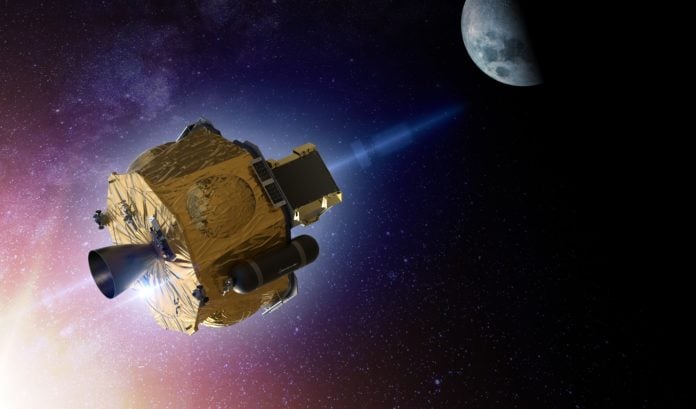Long Beach-based Rocket Lab USA Inc. will deploy a satellite into the moon’s orbit on behalf of NASA later this year from New Zealand, the company announced Aug. 6.
The mission, titled CAPSTONE, or Cislunar Autonomous Positioning System Technology Operations and Navigation Experiment, is the company’s first mission to the moon, aiding NASA in its Artemis moon landing program.
As a part of the mission, Rocket Lab’s Electron rocket will take off from the company’s Launch Complex 1 in New Zealand. The mission was originally slated to take off from the company’s Launch Complex 2 in Virginia in early 2021.
“Flexible isn’t a word usually used to describe lunar missions but operating two launch complexes gives us the freedom to select a site that best meets mission requirements and schedule,” Rocket Lab Chief Executive Peter Beck said in a statement.
The company has teamed up with NASA for previous missions utilizing its Electron rocket to bring satellites into low-Earth orbit. Founded in 2017, Rocket Lab specializes in launching small satellites, deploying a total of 105 over 17 successful missions.
“Our team is immensely proud to be launching one of the first pathfinding missions to support NASA’s goal of delivering a sustainable and robust presence on the Moon,” the company said
Rocket Lab isn’t the only local company that’s shooting for the moon. Hawthorne-based Space Exploration Technologies Corp. secured a nearly $3 billion NASA contract to land astronauts on the moon for the Artemis program in April.

